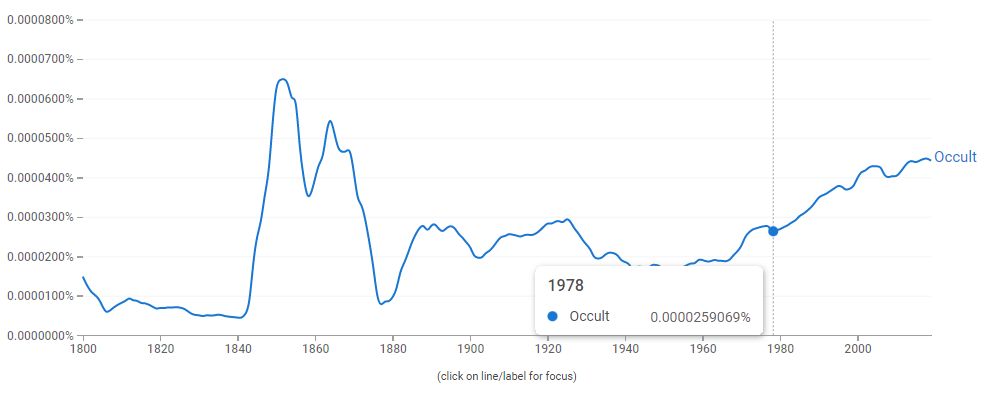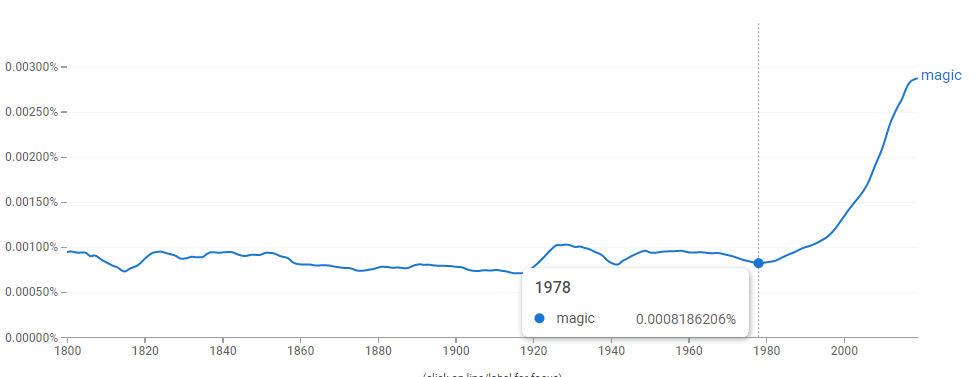There was a scare in the 80s and less so the 90s surrounding things like the tabletop role-playing game Dungeons & Dragons (D&D) or other media that depicts magic as a narrative element and a neutral part of the fictional world. The scare surrounding this is that it was/is seen by some as gateway into real-life magic and/or devil worship. Magic had been depicted before, but D&D introduced a role-play aspect, which is what I guess sparked this scare(?!)
I found explanations of the scare, for example here, but apart from what caused it, it doesn't tell me whether during that time there was actually increased occult practices.
Did D&D and similar media which depict magic neutrally in a fantasy/narrative setting actually lead to an increased interest in the occult though? Causation might be hard to determine, as well as belief of the individuals, so I will settle with:
Was there, during the 1980s, increased interest in the occult, in the sense of people buying occult books and trying magic? I imagine there are, somewhere, statistics which could answer whether more books were sold that treat magic spells or similar practices.

